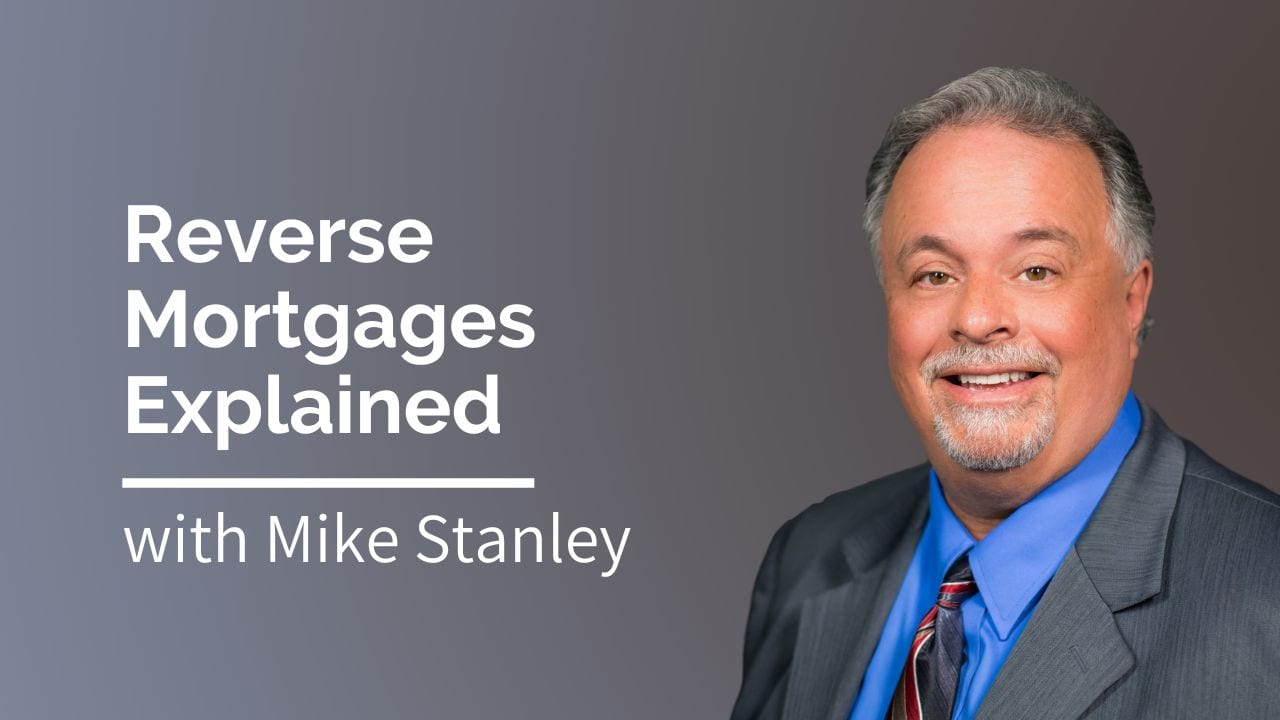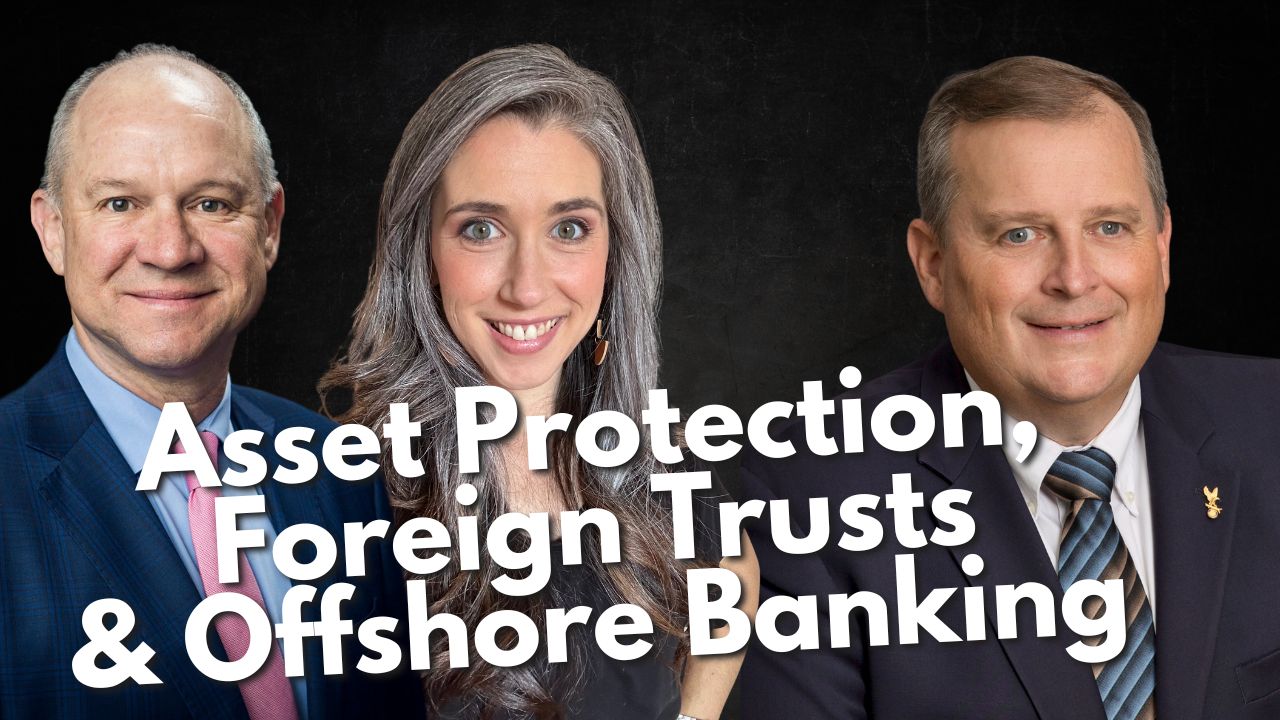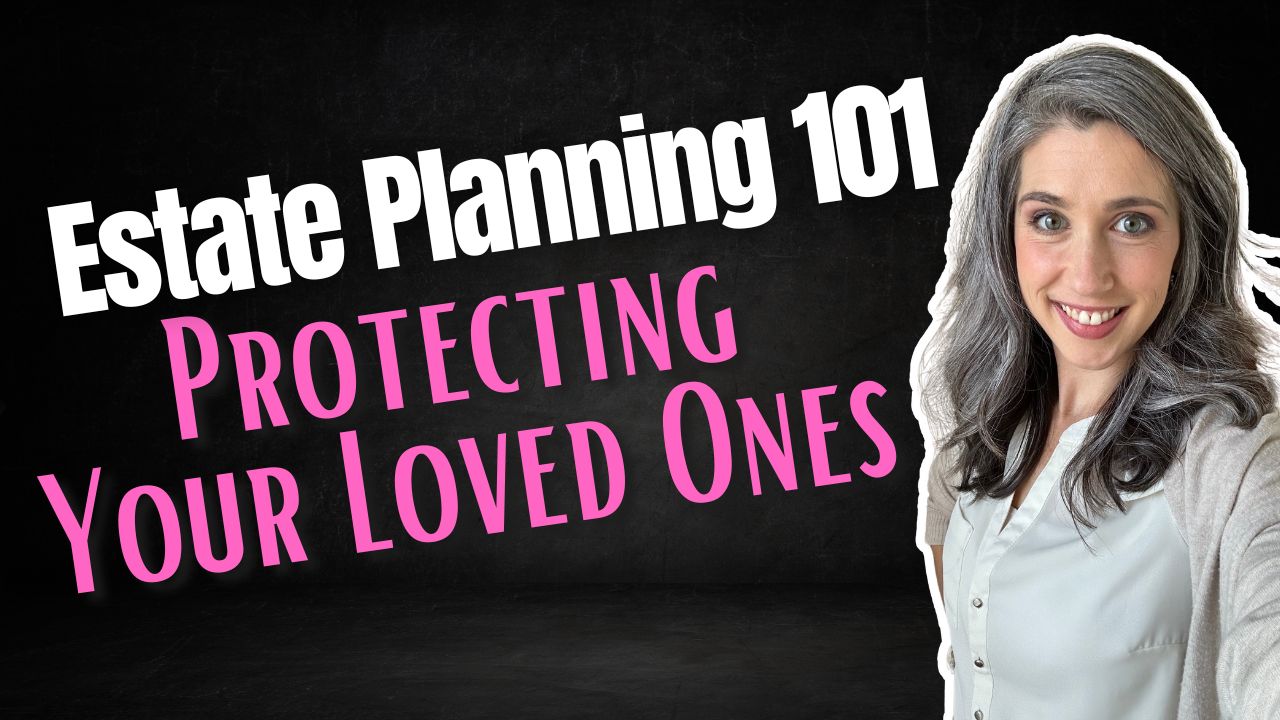
Reverse Mortgage Explained, with Mike Stanley
Could a reverse mortgage help you reach your income goals? How do reverse mortgages work? Is a reverse mortgage good or bad?
Today, we’re talking with Mike Stanley, Regional Senior Lending Sale Manager for Thrive Mortgage. He shares everything you need to know about reverse mortgages explained.
So, if you want to understand just how reverse mortgages work, their pros and cons, and the costs, and get answers to your questions so you can make decisions… tune in now!
Podcast: Play in new window | Download (Duration: 1:00:06 — 68.8MB)
Subscribe: Apple Podcasts | Spotify | Android | Pandora | RSS | More
Table of contents
How Mike Got Into Reverse Mortgages
[9:40] “Most people don’t know what a reverse mortgage is other than a myth or a rumor that they’ve heard.”
Mike Stanley got into the world of reverse mortgages in 2008, yet not without hesitation. He didn’t want to be taking advantage of people, and most information about reverse mortgages is a little hazy. In reality, there are quite a few reverse mortgage strategies that can help people in different ways.
10:25] “It’s not been called, technically, a reverse mortgage since 1988. That’s when congress, in 1988, passed a law called home equity conversion mortgage. You may hear it called a HECM. At that point in time, it stopped being a reverse mortgage, but it was such slang for the terminology. People still call it a reverse mortgage even though it’s a federally insured FHA loan that has all the protections of FHA.”
The Baby Boomer Generation
[13:10] “48 percent of Baby Boomers are retiring while carrying a mortgage into their retirement years… Another interesting fact, 50 percent of those 65 or older have their houses paid for, and 27 percent of those will downsize or right-size into a home that better meets their retirement needs.”
If you’re in the Baby Boomer generation, considering a reverse mortgage strategy can help you downsize. It can also help you find more retirement income by leveraging home equity. If not, those with Baby Boomer parents should be considering how they’re going to care for their parents.
Borrowing Qualifications for a Reverse Mortgage
[19:25] “Right now, to be a borrower, the borrower has to be 62 years of age minimum. It is a mortality or equity-based loan… We take four things into consideration. We take in their age… we take in the value of the home, and we take in the interest rate on the loan—and how much equity we’re going to have to leave in the house.”
What is a Reverse Mortgage?
The short and sweet answer is that you give up the equity in your home in exchange for regular payments. This can provide an income to homeowners over the age of 62, or help you keep your home in retirement. There are even options for those who have children who wish to inherit the home.
[24:18] “There’s a unique feature in the reverse mortgage… it’s called a non-recourse feature, which means and states that no one is ever responsible for paying their home back personally. Only the equity in the house can ever be used at the time the loan is due. The time the loan is due is when the last of the two borrowers… no longer live in a property as their primary residence, or one of them passes away, or they sell the house, or they refinance the house.”
[28:14] “There are four ways of taking money out. If you take a lump sum, there are two options. There’s a fixed rate option. And whatever you take out on a fixed rate is the maximum you get; there are no more funds available. On the… adjustable rate, there is a line of credit.”
[30:30] “Now they do have two other options. They could take what we call a tenure option, which a tenure is a life expectancy payout. Let’s assume that we run our numbers and based off their life expectancy and the pool of money that they have, we can give [them] 800 a month for as long as [they] live in the house… Number two, if 800 dollars a month is not enough, they say, Mike, I need 1100 dollars a month, then we’ll restructure it as a term payment or a term certain annuity.”
Numbers on a Reverse Mortgage
For a $300,000 property at 62 years of age, based on today’s interest rates, you could get about 45% of your home’s equity through a reverse mortgage. If you’re 75, you could get 50-52%. Mike is even working with a couple who are both 94, and they’re getting 70% equity because they have fewer years to accumulate interest.
When you take a reverse mortgage by relinquishing your equity, you get access to a pool of money that is that percentage above. You can then use it as you see fit, and when you’re not using it, it’s earning interest. Mike shares that current rates right now are around 5.5%, so if you get to take a lump sum and sit on it for a while, you can be doing quite well.
What if You’re Not Old Enough?
While you may not be able to do a reverse mortgage yet, there’s a chance you know someone who could benefit. If you have parents, grandparents, or aunts and uncles planning to retire soon, it’s worth knowing a bit about reverse mortgages. Not to mention, it may just be a good idea to know about them for your future use if you decide to incorporate them into your income strategy upon retirement.
Get in Touch with Mike Stanley
- (757)-646-4147
- mike.stanley@thrivemortgage.com
Book A Strategy Call
Do you want to coordinate your finances so that everything works together to improve your life today, accelerate time and money freedom, and leave the greatest legacy? We can help! Book an Introductory Call with our team today at https://themoneyadvantage.com/calendar/ and find out how Privatized Banking, alternative investments, or cash flow strategies can help you accomplish your goals better and faster. That being said, if you want to find out more about how Privatized Banking gives you the most safety, liquidity, and growth… plus boosts your investment returns, and guarantees a legacy, go to https://privatizedbankingsecrets.com/freeguide to learn more.
The Power of Trusts for Generational Wealth with Joel Nagel
If you’re reading this, chances are you’ve already taken the first step towards securing your financial future. But what about the financial futures of your children, grandchildren, or even your great-grandchildren? The journey towards financial stability isn’t a one-generation game; it’s about creating a lasting legacy that will provide for your loved ones long after…
Read MoreEstate Planning 101: Protecting Your Loved Ones
Can you confidently say your family’s financial future is protected? Staring down the barrel of a life-altering moment, I was forced to confront the fragility of existence and the critical importance of having one’s affairs in order. That harrowing experience became a catalyst for today’s soul-searching episode of the Money Advantage podcast, where we navigate…
Read More


